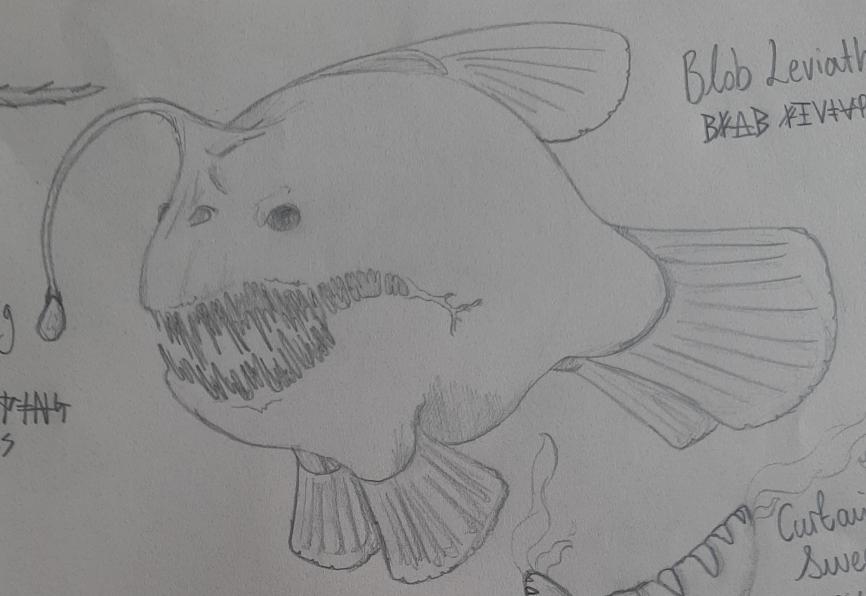Blob Leviathan
The blob leviathan is a leviathan found in the depths of Polaris Ocean. It is thought to be a great ancestor of blobfish, who evolved to become smaller and smaller, turning into what we now know today. They also possess escas which are usually only seen in anglerfish.
Basic Information
Anatomy
Blob Leviathans have a humongous gelatin like body, with no air sacs, allowing them to float at depths beyond most creatures, around 10000m deep. Their mouth stretches over half of their bodies, and the esca hangs from above it, producing a bright yellow light. Its two giant beady eyes resemble an insects. They have short tails in a fan shape, that allow them to slowly swim close to the seabed. Their size classifies them as a leviathan, over 70m long. Its gelatinous body is a dark grey, and can expand up to three times its size, but due to the pressure it doesn't.
Genetics and Reproduction
Blob leviathans, over the course of an entire year, produce eggs which remain in a sac close to their tails. Mid Uribar, these eggs are released throughout the oceans, letting the currents and waves to carry them long distances. Because of this barely any survive, only the ones who remain in Polaris Ocean since the pressure keeps them alive.
Growth Rate & Stages
Blob leviathans grow up very fast, or they make easy prey for a plethora of creatures, even others of its own kind. Blob leviathans take about 5 weeks to grow to its full size, but during the first week it grows to about half its size, just to make sure it survives, then it is a slow growing after that.
Dietary Needs and Habits
Blob Leviathans are carnivorous, eating most creatures in the ocean except other leviathans. They use the esca on its head to attract creatures, then consuming them.
Additional Information
Perception and Sensory Capabilities
They use their escas, long organs hanging from an appendage on their head, to attract prey in the almost pitch black environment they live in.
Their beady insect eyes also give them night vision, allowing them to see in the darkness.
Their beady insect eyes also give them night vision, allowing them to see in the darkness.
Geographic Distribution









Comments